Photographs: Rediff Archives
The Ram Pradhan committee that went into the response by the police to the 26/11 attacks has pointed out "total confusion" in processing of Intelligence alerts at the level of the state government and "inadequacies" in the existing mechanism for analysing alerts about possible strikes.
In the panel's report, which is yet to be made public but has been accessed by PTI, there are instances of non-adherence to the Standard Operating Practice (SOP) during the terror siege.
"It was specifically mentioned (in the intelligence reports) that attacks (were) to take place on three dates that is on August 20, 2006 (alert dated 07-08-2006), May 24, 2008 (alert dated 19-05-2008) and August 11, 2008 (alert dated 09-08-2008) against certain targets, including Taj and Oberoi hotels, which did not happen," it said.
"An overall assessment and proper analysis of these reports would have revealed a strong indication that some major terrorist action was being planned against Mumbai. The existing mechanism to make such an overall assessment was inadequate," the report said.
Bouquet for Maria, brickbat for Gafoor
Image: Maria and Gafoor are seen together after a press conference in MumbaiPhotographs: Sahil Salvi
The committee report criticises former Mumbai Commissioner of Police Hasan Gafoor for flouting the Standard Operating Practice during the terror attacks by making Joint Commissioner Rakesh Maria incharge of the control room.
The report said the committee examined the SOP in case of bomb blast or terrorist strikes sent to it by the CP. It lays down that the Joint CP (Law and Order) will head the Crisis Management Command and be in charge of all control rooms. The Joint CP (Crime) would work in close association with Joint CP (Anti-Terrorism Squad).
"These instructions were not followed on November 26, 2008. The CP decided instead to direct Jt CP (Crime) to be in-charge of the Control Room when as correctly described in the SOP, Jt CP (L and O), being in-charge of all police stations in Mumbai was better suited to decide on marshalling of forces at various sites," the report says.
The Committee however "noted with appreciation the role played by Maria, Jt CP (Crime) in the Control Room in handling a very serious crisis situation extending over three days."
It further said, "The Committee is constrained to observe that as a rule, carefully prepared SOPs that draw upon experience and lessons from past, should not be overlooked in crisis management. If each top officer, such as the CP or the DGP treats SOPs in cavalier manner, why have the SOPs at all?"
Loopholes in Intelligence
Image: Police personnel take cover behind vehicles during the stand-off at Taj hotelPhotographs: Sanjay Sawant
The committee also noted that the Maharashtra Director General of Police received inputs from Central snoop agencies like IB and RAW on possible terror strikes prior to the 26/11 attacks but it was not shared with the state intelligence chief.
Quoting the then chief of state intelligence, D Sivanandan, now city commissioner, the Committee report said, "Another glaring systemic loophole was observed in the way intelligence from Central agencies is processed at the state level in the DGP's establishment."
Sivanandan told the Committee that despite he being the nodal authority on intelligence in the state, all central intelligence alerts come first to DGP/CP with no copy marked to him. He comes to know of such alerts only if the DGP marks a copy to him. Even proceedings of Multi Agency Centre (MAC) were not marked to him.
The State Intelligence Department (SID) under him was unaware of any intelligence alert on terrorism prior to November 26, 2008 even though there were 17 alerts since August seven 2006 talking about the possibility of sea-borne attacks and of multiple and simultaneous attacks, including three others with the possibility of fidayeen attacks.
More shocking revelations
Image: Policemen inspect the site a day after the Nariman House encouter endedPhotographs: Vaihayasi Pande Daniel
The report said it was a "shocking revelation" that under the "desk officer" system, even intelligence alerts from MHA were directly received and processed by the desk officer concerned instead of Additional Chief Secretary (Home).
"It is for the senior officers to ensure that they are kept fully informed and not blame working of a desk officer system that does not keep them briefed on the intelligence front.
At the level of desk officer, we do not expect the individual to fully appreciate the complexities of such type of intelligence," the report said.
The Committee has recommended that Principal Home Secretary Home (Law and Order) be designated as the nodal officer to receive and act on such reports. Referring to the SOP in situations of bomb blasts or terrorist strikes, the report said it envisaged that Joint Commissioner of Police (Law and Order) will head the Crisis Management Command and be in-charge of all control rooms and that JCP (Crime) would work in close association with JCP (ATS).
Taj, Oberoi managements 'tragically' failed
Image: The Trident HotelPhotographs: Sanjay Sawant
The Ram Pradhan Committee said the Taj and Oberoi hotel managements had 'tragically' failed to implement important security advice given by Mumbai Police prior to November 26 terror attacks owing to 'own policy perspective as hospitality industry'.
The Mumbai police had carried out discussions with both the hotel managements as the Intelligence Bureau in September last year had sent an alert saying the Lashkar-e-Taiba was "showing interest" on certain targets like Taj Mahal Palace hotel in Mumbai.
"The Committee is constrained to observe that tragically, the Taj and the Oberoi managements did not implement certain important security advice given by DCP Zone-1 because of their own policy perspective as hospitality industry. The Committee has noted that no request was received from Taj or other hotels to augment police security for them in view of such alert," the committee said in its report.
Describing the run of meetings between Mumbai police officers and the hotels management prior to the attacks, the committee said, "on receipt of IB alert dated September 24 2008 that LeT was showing 'interest' on certain targets like Taj Mahal Palace hotel etc another meeting was held with Taj security officials on September 29, 2008 by DCP Zone-1 when Karam Bir Kang, General Manager of the hotel was also present.
The DCP Zone-1 visited the Taj Hotel again on September 30, 2008 to personally brief the security officials.
Leopold owner knew about the threat
Image: The Leopold Cafe in ColabaPhotographs: Sanjay Sawant
Talking about Leopold cafe, the report said, "in an intelligence alert to DCP Zone-1 on June 26, 2008, Leopold Cafe was mentioned as one of the sites for attack besides the high court, DGP's Office, Department of Atomic Energy, Naval installations etc. The DCP visited the police station and instructed the Senior Police Inspector to take steps to remove hawkers from in front of the cafe.
He again visited the spot on August 11, 2008 and November 24, 2008. The Senior Police Inspector informed the Committee that he had sensitised the restaurant owner about the threat.
"According to DCP Zone-1 as many as 92 cases against illegal hawkers were made by the local police on August 24 and November 25 last year. Consequently it appears to the committee that out of 11 dead and 28 injured at the Leopold site there were only three hawkers," the report said.
On the Nariman house attack the committee observed, the police were totally taken by surprise when Nariman House was attacked. Three intelligence alerts were received from IB regarding the possibility of Jewish targets being attacked.
"However, in none of them this particular target was mentioned," the report said.
ATS is still woefully short of men
Image: A member of India's anti-terror squad carries a gun in front of Taj HotelPhotographs: Desmond Boylan/Reuters
The fact remains that more than six months after Ram Pradhan Committee recommended streamlining the functioning of Anti-Terrorist Squad, the force remains woefully short of men even today.
The Pradhan Committee gave its report on April 18 in which it noted that the structure of ATS and its operations are in a "somewhat confusing state".
"Government should reiterate that normally all terrorist attack cases in Mumbai city as well as in rest of Maharashtra should be investigated by ATS alone unless otherwise decided," the report said but the force seems ill-equipped to fulfill the duty recommended by the committee", the report said.
The crack force at present has only 300 personnel, notwithstanding the strictures from the Bombay High Court this year for neglect by the government.
The cumulative strength of constables and head constables of ATS stands at 240 against the sanctioned strength of 730, according to figures accessed by PTI.
The strength of middle-level officers also appears no better. There is only one Superintendent of Police against against four sanctioned, three Assistant Commissioners of Police against nine and a mere 20 Inspectors against 50.
The number of Sub-Inspectors, the cutting edge of the force in as much as they are the first to investigate a case, is only 30 against a sanctioned strength of 155. ATS chief K P Raghuvanshi, an additional DGP in rank, declined to discuss the issue of numbers on the ground that it relates to the force's operations. DGP A N Roy was also unavailable for comments.

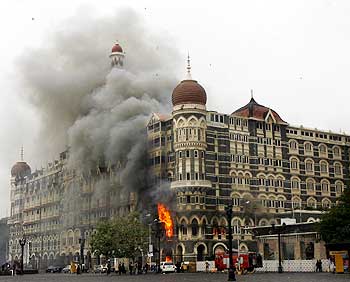
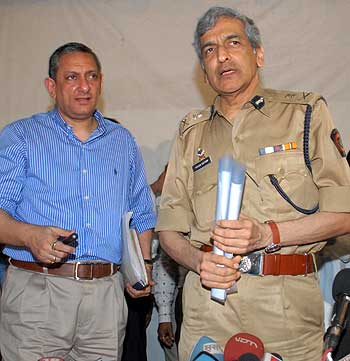
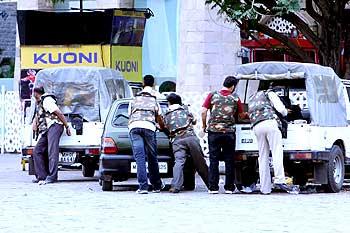
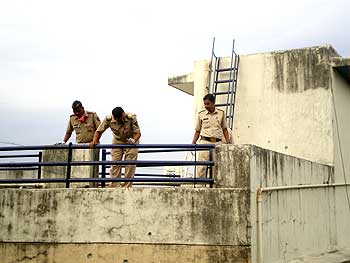
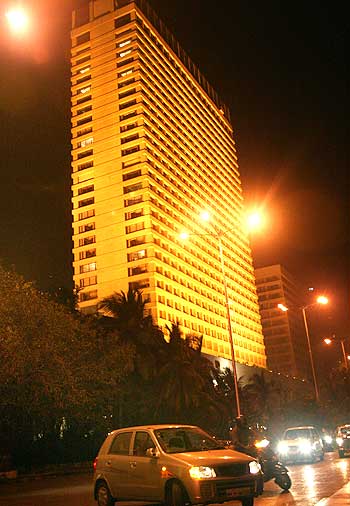
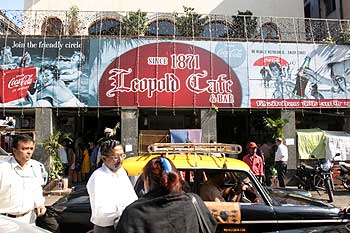
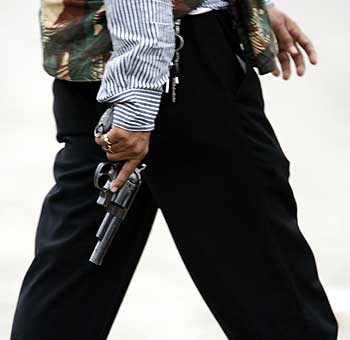
article